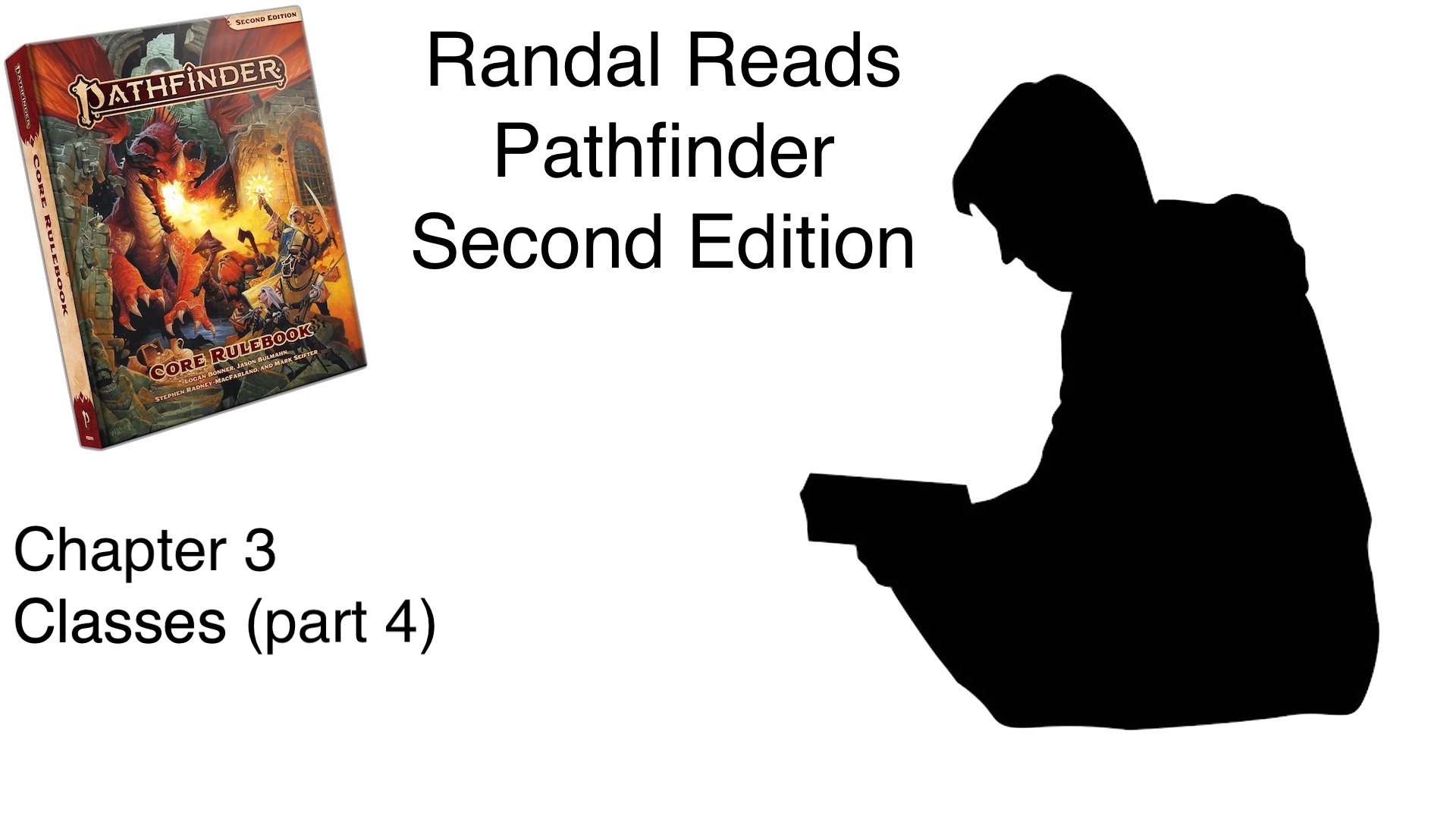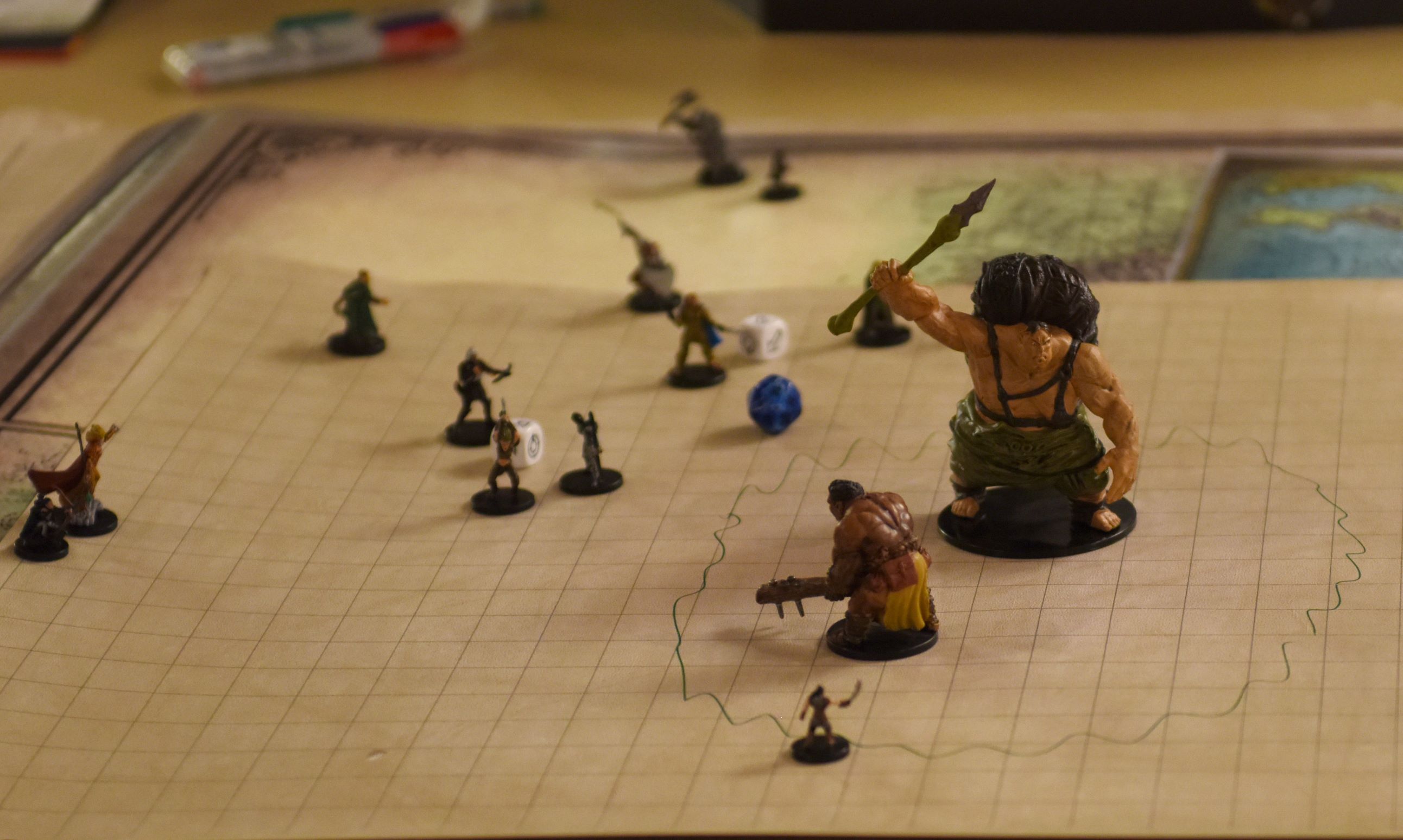Have you every made a character that was all story and terrible in combat? What about one that was basically just a neat build and didn’t really have much interesting story stuff going on under the hood? Today we look for ways to bring balance to the build.
Dear DovahQueen: When creating a new PC, what are some tips for navigating the balance between crafting a backstory and carefully selecting stats and feats? What are advantages and disadvantages of starting with one or the other? And how do you know when the PC is ready to play?—Blane the Barbarian
Dear Blane: The balancing act between fluff and crunch in a character is maybe one of the most important balances in a game. A player who builds a character purely based on strong system concepts like class feats and abilities runs the risk of getting bored in the late game. More often than not, a one-trick pony becomes a dead horse getting beaten when the player’s main focus is on the character’s utility. In the early game, sure it’s going to be a lot of fun to watch your build do exactly what you designed it for, but if you’ve been doing the same thing for six months, it runs the risk of starting to get stale. The solution to that is to have a rich and dynamic character. Of course, like most things in life, too much of a good thing becomes a bad thing. If all you do during character creation is focus on the story of the character and choose things that fit the narrative but don’t necessarily make for a good adventurer, you’re going either A) have a bad time or B) make everyone else have a bad time when your character can’t pull their weight. I believe that the most effective solution to this is to simply be aware that too much in one direction can be a hinderance. A common solution which works well for most folks is to make their cool build and then slap a backstory on it. Personally, I think this option does the bare minimum in regards to making a well-rounded character. I’ll talk a little bit about my methodology, but it’s certainly not the only way to find that balance.
I start out by looking for inspiration. Maybe it’ll come to me while watching a movie; maybe I’ll find it while I’m reading the Core Rulebook. I tend to believe that an *inspired* character will go further than one that isn’t, but this isn’t always the case. Two of my most favorite characters were ones I had to just throw together that ended up being really interesting in their system and in their story. (Both of them are PF2 characters too btw) After I have a neat concept already in mind, I’ll crack open the classes section and start looking for the best fit to flesh it out. Mind you, I make the frequent mistake of choosing what fits the concept more than of what fits a strong adventurer. Depending on the system you’re playing in, this may or may not be a problem for you. I find that PF2 is actually quite forgiving; most combinations of options will produce a viable character. PF1 and 5th are…less so forgiving. Now, if your concept is of a wizard with a low Int, you may have to develop your concept a bit so you’re not hamstringing yourself, but it could still work. Maybe we go from ‘stupid wizard’ to a ‘sorcerer who doesn’t know he’s a sorcerer and is studying to be a wizard?’ That could actually be funny since magic could still happen, and he could still be both good at it and dumb as rocks. We can normally find a way like that to make a concept work in system without actually ‘ruining’ the concept. Now, it’s obvious to see how a moron mage as a wizard with low Int could ruin the play-experience. For most characters, it’s not one big decision that ruins the design so much as a series of small ones. Be cognizant of this while you pick out the class features, and give the build some patience while you flesh it out. You don’t have to take all the fluffy features in the beginning. Take as many features as needed to be useful upfront and find places later on to mix in the things that are *less* useful but more on-brand with the character.
After the character is ready to play, I like to hammer out the remaining backstory stuff. We obviously have our core concept in place, but who are the parents? Were they hard and always pushing their child too hard? Why are we adventuring? Did we just wanna make them proud at all costs? What life choices made this character wanna be a wizard despite being…simple? I bet wizardry just seemed like the fastest path to proud parents in the eyes of our hapless spellcaster. An important and oft-forgotten one: who are(were) the close friends? Strong relationships like those are powerful during our formative years in real-life; it’d be a shame to neglect them for the character we’re going to be inhabiting for (hopefully) a long time. What about hobbies? I personally think that *every* character needs to have a hobby that’s wholly unrelated to adventuring. My half-orc barbarian/sorcerer likes to craft children’s toys to hand out since she never had any toys growing up with her frost giant foster father.
After that, buy gear and do a quick audit! Does the character have a melee option and a ranged option? Check. Does the character have a social option? Check. Is everything there that needs to be there to be able to pull your own weight in combat? It’s not too late to change a flavorful feat into something more effective in combat if the math is combat-lacking.
Now if you’ll excuse me, I have to go write an idiot wizard.
You can request RPG advice by sending an email to deardovahqueen@gmail.com or by message on Facebook.







